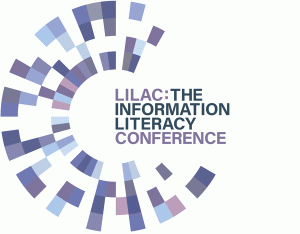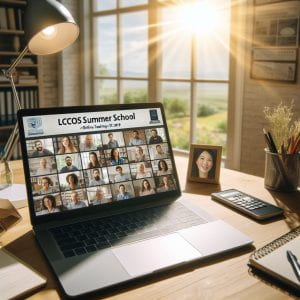The Library Liberating the Collections Steering Group (LLTC)  was set up in 2020 to oversee the numerous strands of activity being taken to address inherent bias within our library collections. It includes representatives from library teams working across our modern and special collections. Examples of the work we’ve undertaken so far can be found on our website.
was set up in 2020 to oversee the numerous strands of activity being taken to address inherent bias within our library collections. It includes representatives from library teams working across our modern and special collections. Examples of the work we’ve undertaken so far can be found on our website.
As part of the LCCOS Summer School 2024 the group delivered two workshops. Their purpose was both to inform and connect with colleagues across the department, sharing and receiving feedback on our initial achievements, and also inviting participants to contribute to the group’s vision and future plans by focusing on three themes:
What does Liberating the Collections mean to you?
There were a wide range of discussions under this first theme, which mostly confirmed that the term ‘liberating’ is applied in its broadest sense and has connotations that cut across all areas of activity, of which ‘decolonisation’ is a key part. The steering group confirmed that this was the original intent of its name and remit, as well as forging a connection between this work and earlier activities at UCL under the ‘Liberating the Curriculum’ banner.
There was a broad consensus that the term ‘liberating’ should represent work to make the collections more inclusive and more representative of groups that have previously been excluded, and to enhance access for those outside of the university who may wish to use them, although there was a concern that while the breadth of intent was there, the phrase ‘liberating the collections’ may not represent the whole scope of the work being undertaken.
There were some interesting comments made about how this work fits with the wider university and national picture of similar initiatives, and that it would be helpful to know if UCL is leading in this area, or whether we are forming a valuable part of a bigger community of practice.
Participants also highlighted the importance of transparency, especially about decision-making – not only about acquisition and removal but about steps taken in response to user feedback, allowing teams to understand and replicate these steps in their own collections.
Personal experiences, interactions and support needs
There were a range of personal experiences relayed by participants in the groups, and the variety was notable, both in location and subject. The conversation focused on escalation pathways and support needs for areas such as problematic classification categories and subject headings, assessing purchase requests, content warnings on reading lists and inherent biases in systematic reviews. There were several helpful suggestions raised for the group to consider; these included sharing examples of complaints and issues raised on the LCCOS intranet, so that the learning from these examples can be utilised across different sites.
It was also suggested that the group should publish clear statements on the LLTC website about the nature of our collections, the relevant policies as well as the process that will be followed if someone raises an issue or concern. There was a discussion about escalation, and it was noted that as well as a need to ensure that managers are equipped to support staff in dealing with issues that arise in the collections, there also needed to be support for teams in making time to address potential concerns as part of business as usual, rather than waiting for a complaint to be made
What do you think the LLTC Steering Group should do in the future?
As well as the ideas captured in the discussions above around creating support for colleagues, especially those working in front line or liaison roles, participants made a wide range of suggestions for activities that the Steering group could get involved with: creating training content, capturing and sharing worked examples and case studies, as well as a push for more advocacy and communication in general about the work that the group is doing.
Several comments were made around how it would be a positive move to be more transparent about the fact that we are undertaking this work in LCCOS and to invite people from the university community to contribute, particularly students and academic staff. It was also noted that it is a good thing to be seen to be trying to improve things, and being clear about the difficulties that the group face as well as the positive steps and decisions that have been made. Openly engaging with the community about activities such as the prioritisation of collections to be assessed for offensive/troubling content and content warnings was also suggested.
Some distinct projects were also suggested such as work to address colonial language in cataloguing practices, dynamic collection responses to global and geopolitical events, and addressing responses for different types of library audience such as the NHS.
Attendees also shared some excellent resources including:
Summary and next steps
Since the Summer School, the LLTC Steering Group has considered the detailed feedback from both sessions in depth. The group decided on the following actions:
- The LLTC website will be updated to include case studies of work that the group has already been involved in.
- The group will draw up an overview of training needs and develop actions accordingly. The requirements will be led by the suggestions from the Summer School, and further developed using data from a recent survey of library colleagues involved in academic liaison.
- More training needs analysis will be undertaken with other targeted groups of colleagues to further inform the development of a training programme.
- More energy will be put into communicating the work of the group, not only within LCCOS but also across UCL and externally where opportunities arise.
The overall feedback will continue to inform the LLTC Steering Group’s work, help to frame and focus our actions and contribute to development of longer-term plans.
With thanks to colleagues who participated in the Summer School workshops and all who have shared their experiences, ideas and support.
 Close
Close








